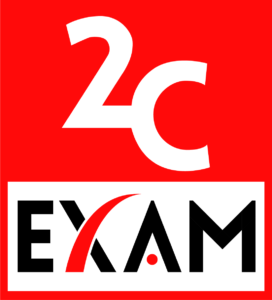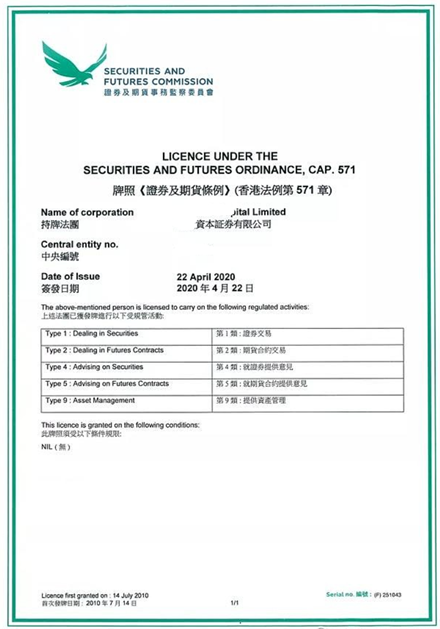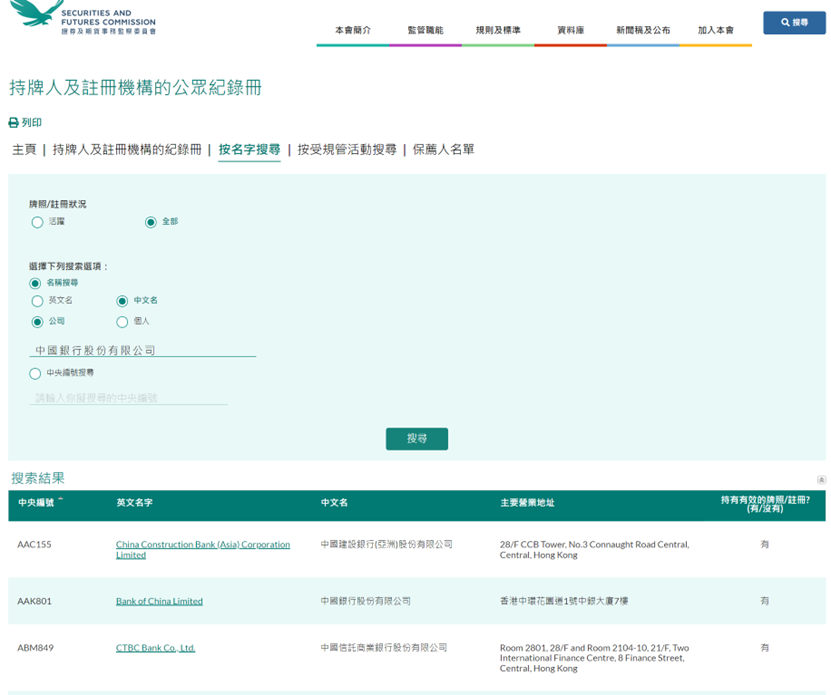What is the difference between an SFC license and HKMA registration in Hong Kong?
In Hong Kong, the statutory organization responsible for regulating the securities and futures markets is the Securities and Futures Commission (SFC).
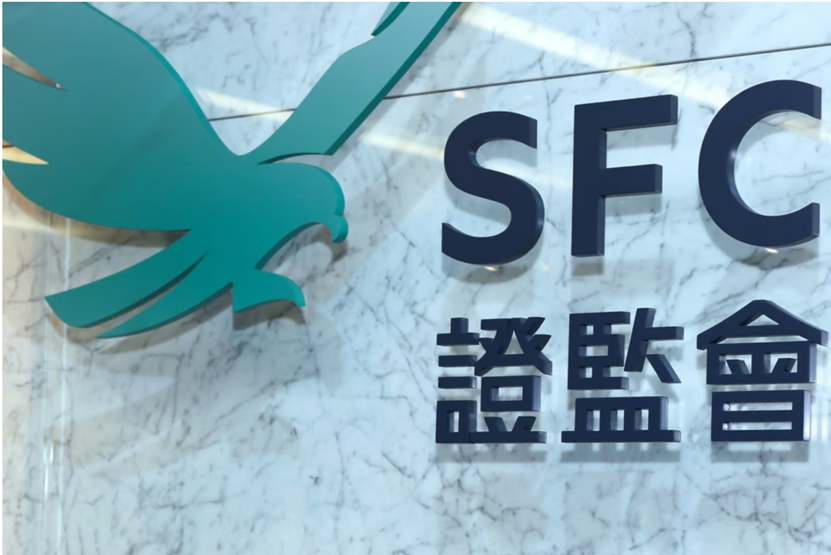
The Securities and Futures Ordinance, which came into effect on April 1, 2003, grants the SFC regulatory authority over the securities and futures markets in Hong Kong, including the important function of "licensing and regulating intermediaries engaged in regulated activities". According to the Securities and Futures Ordinance, unless exempted, anyone who carries on a regulated activity in the securities and futures markets or in the non-bank retail leveraged foreign exchange market in Hong Kong, or who holds themselves out as carrying on such activities, must obtain a license or registration from the SFC in accordance with the relevant provisions of the Securities and Futures Ordinance, or they will be committing a serious offense.
Schedule 5 of the Securities and Futures Ordinance specifies ten categories of regulated activities.
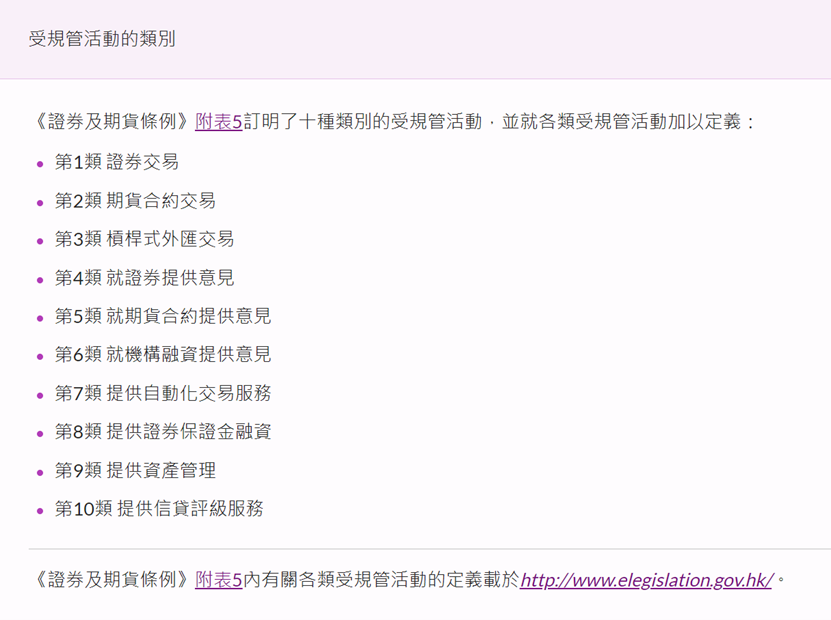
In brief, if a company or individual wants to engage in regulated activities such as securities trading, futures contracts trading, or asset management, they must obtain the qualifications from the SFC to conduct such regulated activities.
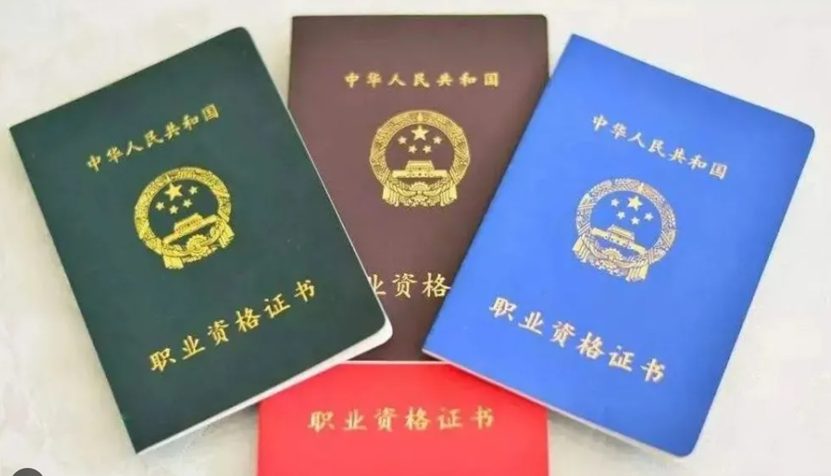
This qualification is divided into two types:
Obtaining an SFC license to become a licensed corporation or licensed person;
Registering to become a registered institution or registered person, that is, obtaining the so-called HKMA license in the industry.
So how do you determine which type of license to apply for?
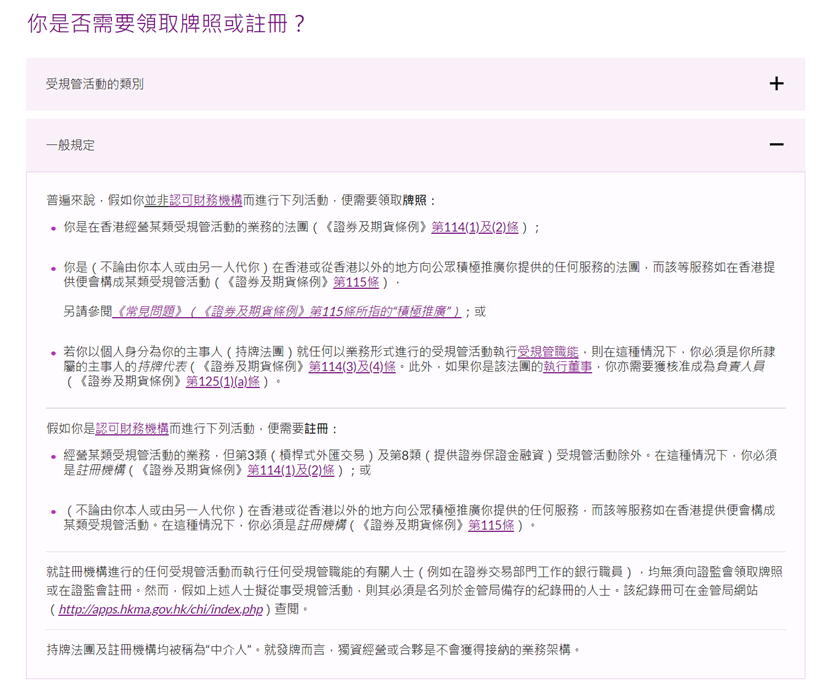
According to sections 116 and 117 of the Securities and Futures Ordinance, non-licensed financial institutions become licensed corporations (LCs) once they apply for and obtain a license from the SFC.
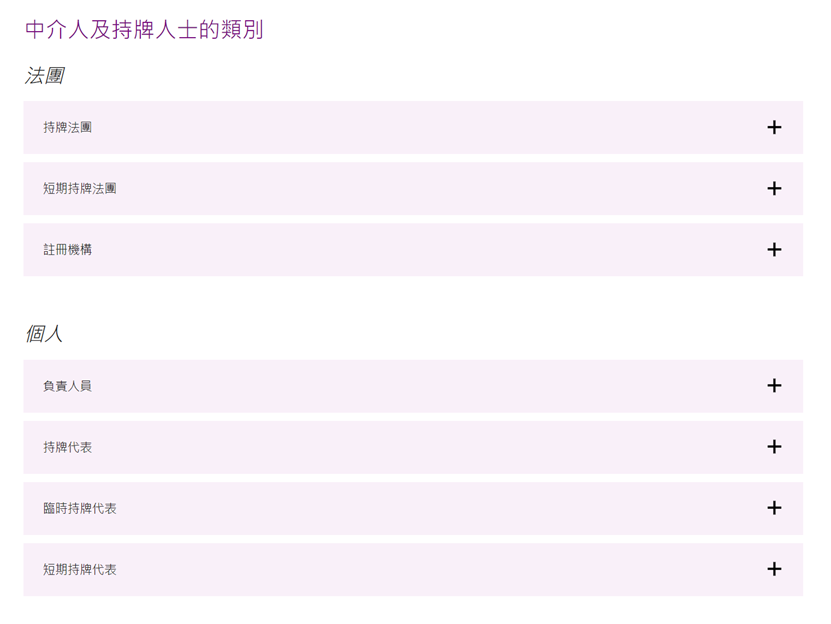
Individuals who are engaged in regulated activities under a licensed corporation are known as licensed representatives (LRs) after obtaining a license issued by the Securities and Futures Commission (SFC).
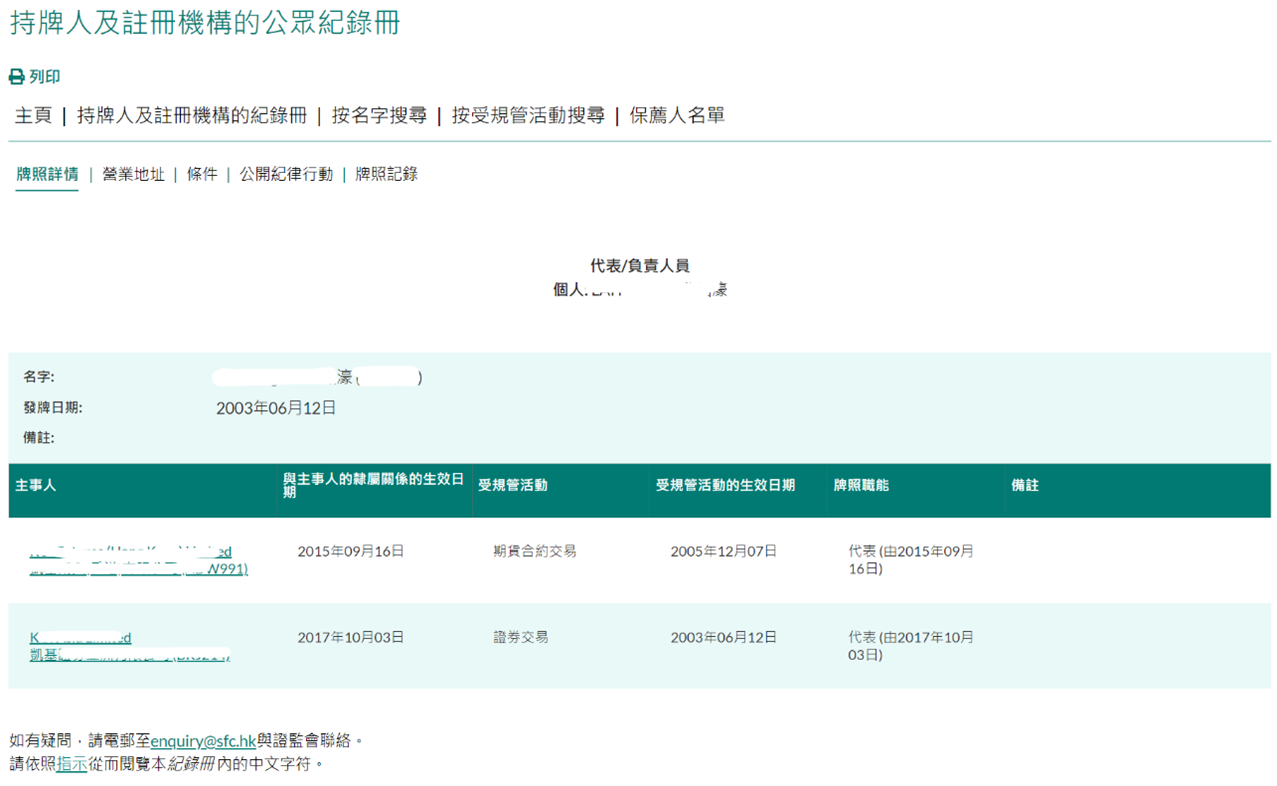
After being approved by the SFC, the licensed representative becomes a responsible officer (RO) responsible for supervising regulated activities.
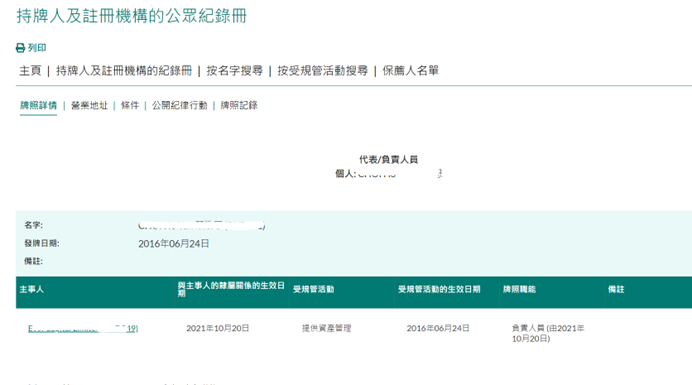
According to section 119 of the Securities and Futures Ordinance, a recognized financial institution that has been registered with the SFC is referred to as a registered institution (RI).
Employees of registered institutions who engage in regulated activities and whose names are entered in the Securities Industry Record of the Hong Kong Monetary Authority (HKMA) are referred to as relevant individuals (ReI).
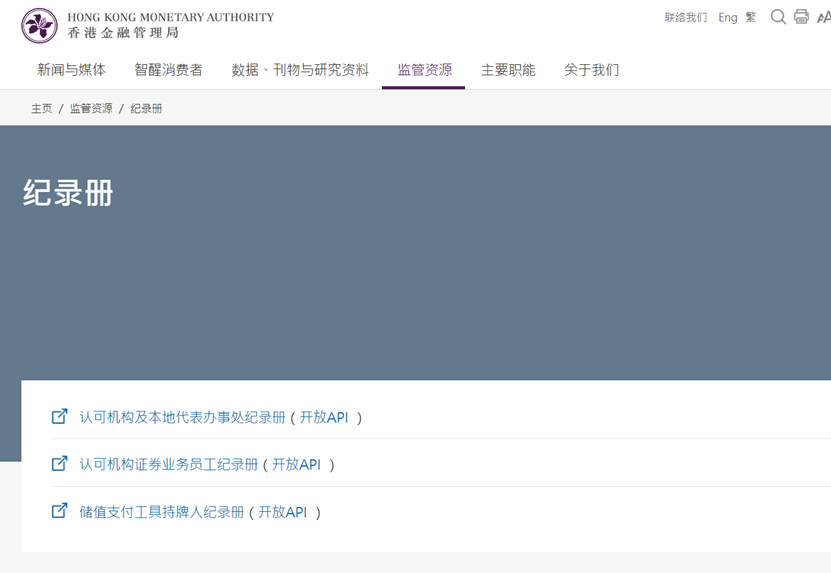
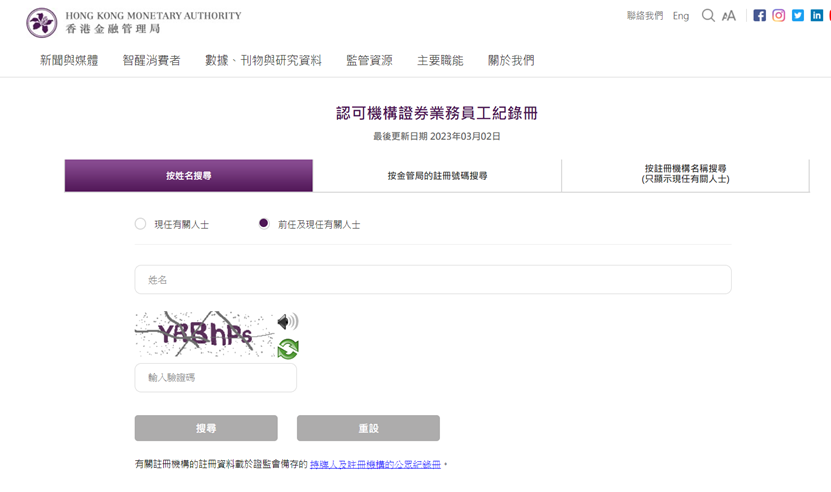
A licensed representative or relevant person affiliated with a registered institution, who has applied to and received approval from the Monetary Authority to serve as the executive officer (EO) of the registered institution.
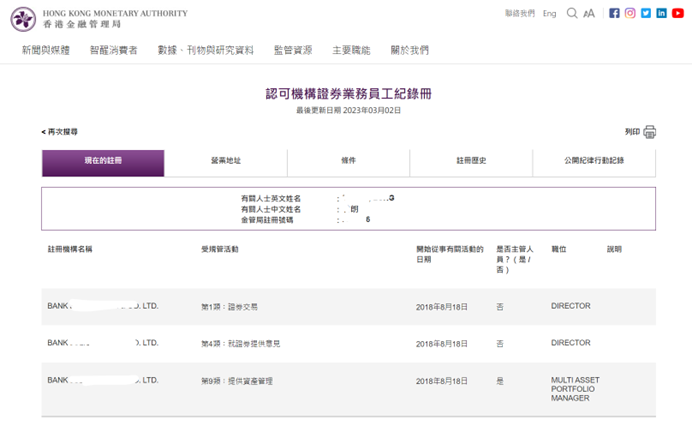
The main difference between SFC and HKMA licenses is whether the corporation or affiliated corporation is a recognized financial institution.
So, what is a recognized institution?
A recognized institution refers to licensed banks, restricted-license banks, and deposit-taking companies.
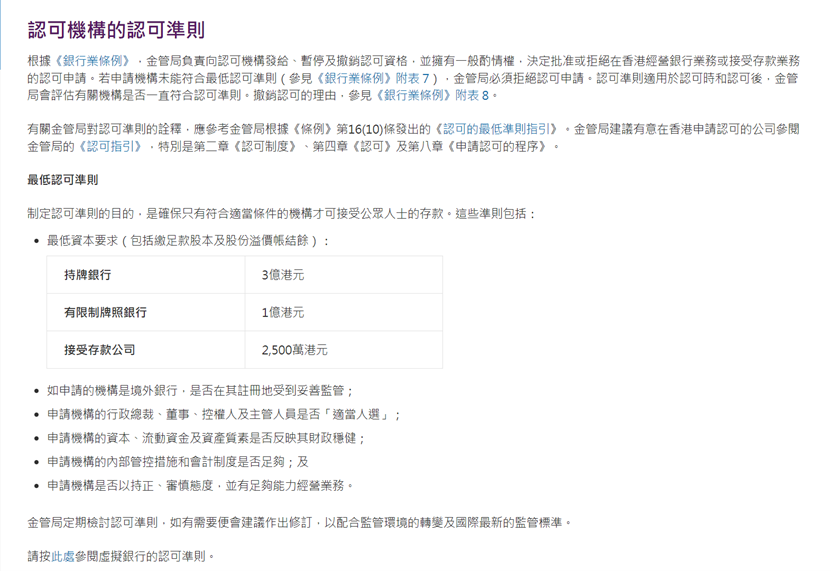
In simple terms, it refers to banks. Companies registered in Hong Kong or overseas companies registered with the Hong Kong Companies Registry are considered non-recognized institutions.

Why are recognized institutions registered with the SFC instead of applying for a license?
According to the Banking Ordinance, the Hong Kong Monetary Authority (HKMA), also known as the Monetary Authority, is responsible for granting, suspending, and revoking the recognition status of recognized institutions. It has general discretionary powers to decide whether to approve or reject applications for recognition to conduct banking or deposit-taking business in Hong Kong.
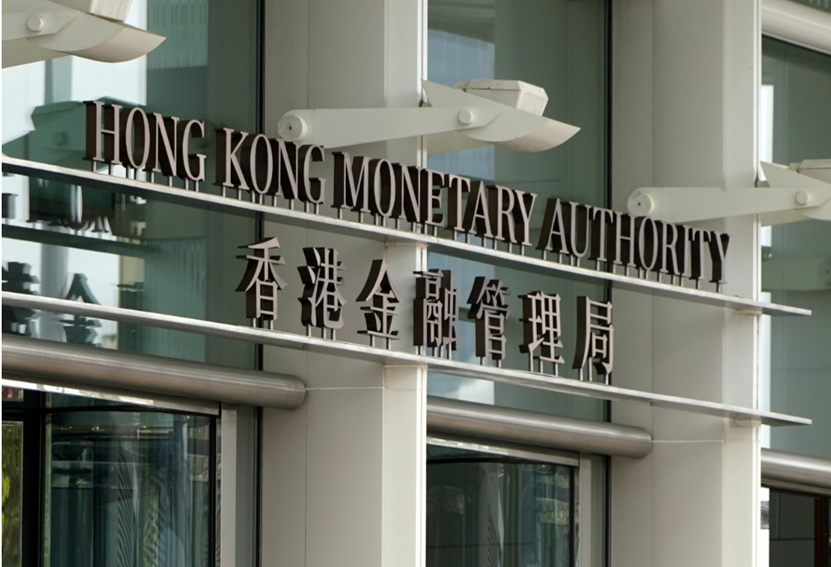
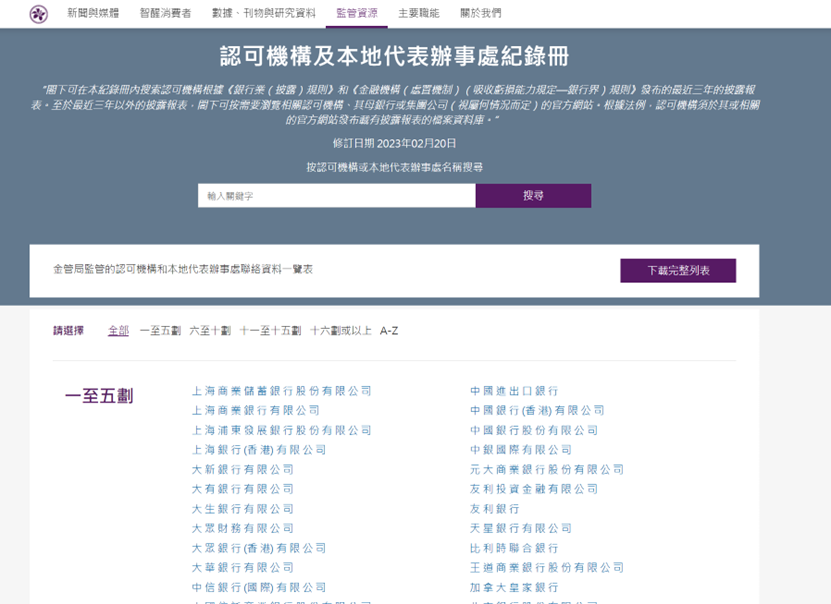
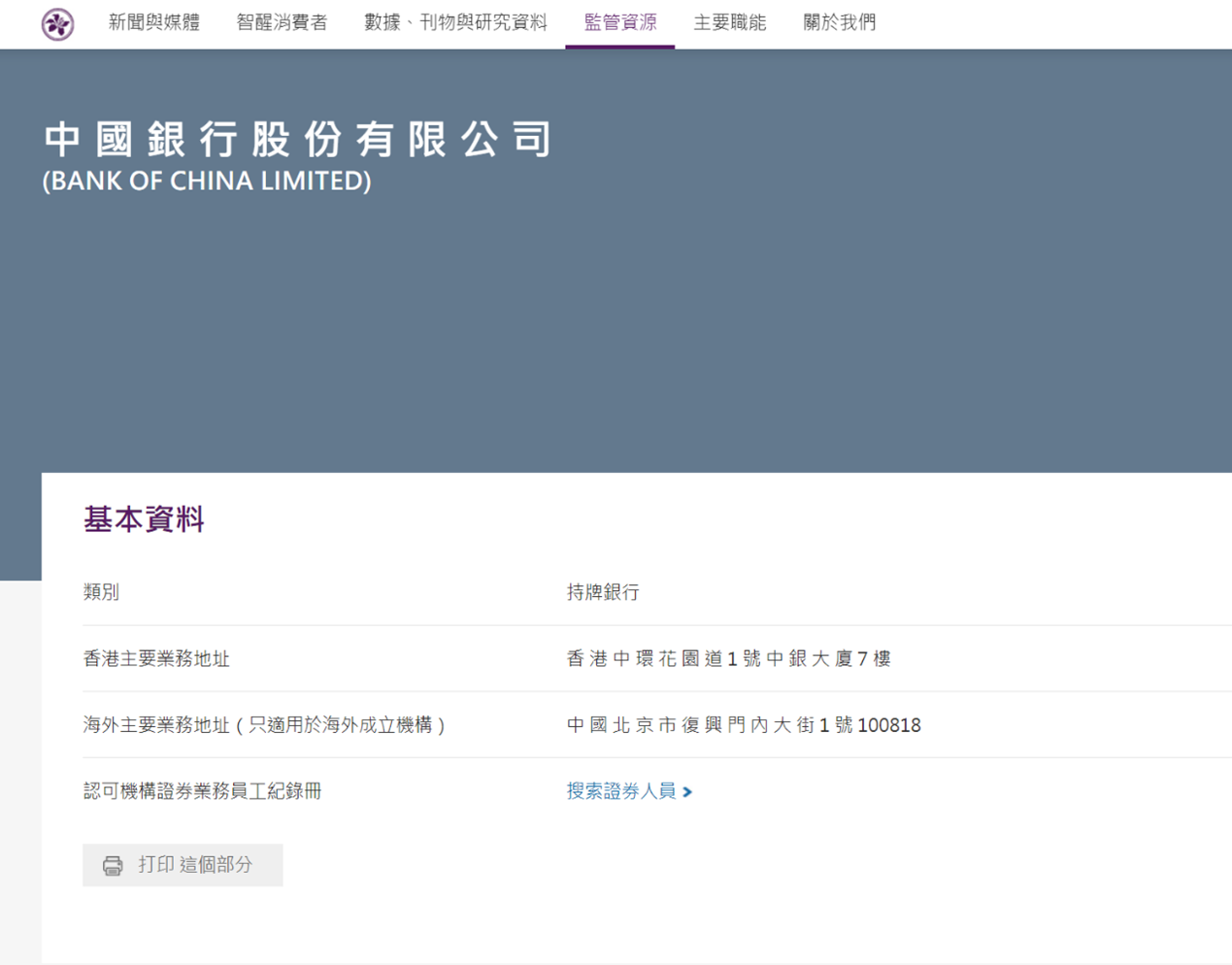
The HKMA is the statutory regulatory body for the banking industry in Hong Kong, while the Securities and Futures Commission (SFC) is the primary regulatory body for the securities industry in Hong Kong. Therefore, if a bank wishes to engage in securities business regulated by the SFC, it needs to register with the SFC. The registration process involves the bank submitting application materials to the HKMA, which then reviews and forwards them to the SFC for registration. Banks engaged in securities business regulated by the SFC are jointly supervised by the HKMA and the SFC, with the HKMA remaining the frontline regulatory body.

Therefore, banks conducting securities business register with the SFC as registered institutions, rather than being directly regulated and licensed by the SFC as licensed corporations.
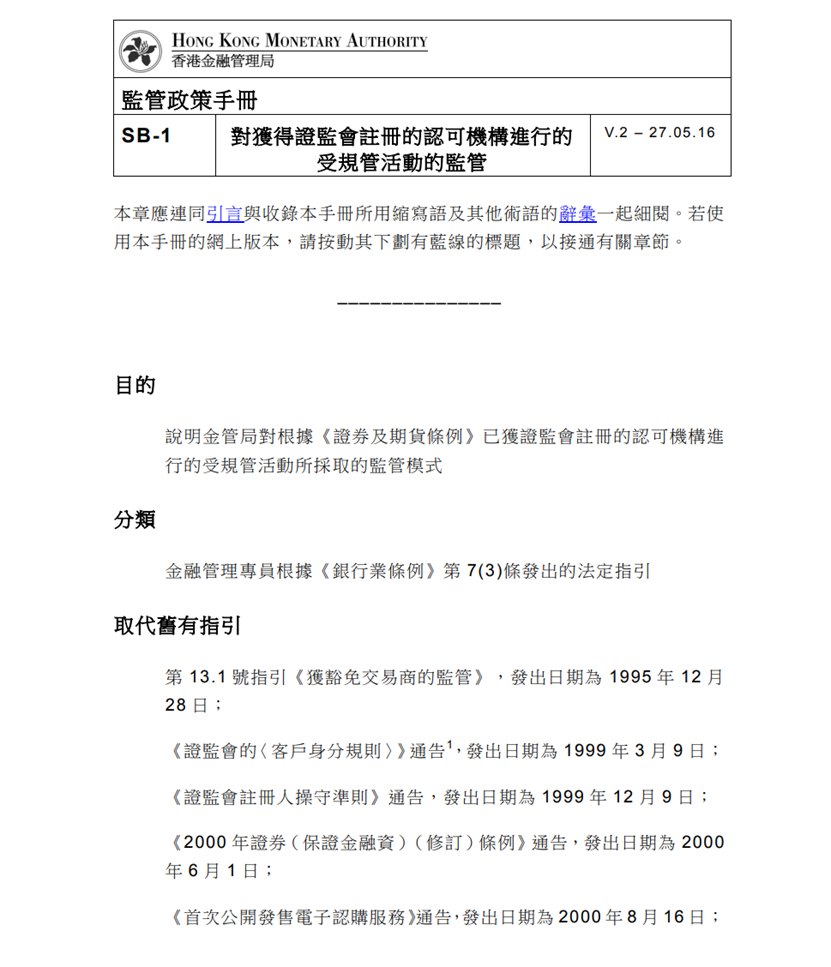
The differences between the two can be summarized in the table below:
| Corporate Category | SFC Qualification Category | Employee License Category | Regulatory Authority |
| Non-Recognized Institution | Licensed Corporation | Licensed Individual | SFC |
| Recognized Institution | Registered Institution | Relevant Individual | HKMA and SFC |
Lastly, complaints against a licensed corporation or licensed individual are handled by the SFC. Complaints against registered institutions or relevant individuals are the responsibility of the HKMA.

How can we help?
2CExam provides HKSI LE, IIQE, EAQE and SQE related exam preparation materials. We sell mock question banks for HKSI LE Papers 1, 2, 3, 5, 6, 7, 8, 9, 12 in Chinese and English; and bibles for HKSI LE Papers 1, 2, 6, 7, 8 in Chinese. We also offer 1 on 1 tutorial services. Besides, we have also made free tutorial videos for HKSI LE Papers 1, 2, 6, 7, 8, 12 and posted on public channels such as Youtube/ Bilibili/ Tencent/ Iqiyi. 2CExam has been an exam training expert for years. Should you need any help please visit www.2cexam.com or contact us through:Phone +852 2110 9644 Email: [email protected] Wechat: hk2cexam WhatsApp: +852 9347 2064
Please support us by leaving comments and likes if you think this article helps you!
You can scan or click on the QR codes to visit our social media.
Latest Article
Categories
過往文章
Contact US
-
Phone:
+852 2110 9644
-
Email:
-
WhatsApp
+852 9347 2064
-
WeChat
hk2cexam
Interesting Articles
Is the HKSI paper-based exam or the computer-based exam easier? Which is better to partake in?
Many people are curious about the differences between the HKSI LE’s computer-based exam and the paper-based exam. As per the two exams’ content, they are pretty much identical. The two exams use the same Study Guide, the exam questions are drawn in the same question bank. Some people say that they have taken…
What are the differences between a computer-based and paper-based exam for the Estate Agents / Salespersons Qualifying Examinations?
There are differences between the computer-based exam and the paper-based exam? Some people say that the computer-based exam / paper-based exam will be easier? Many people are curious about the differences between the EAQE/SQE’s computer- based exam and the paper- based exam. As per the two exams’ content, they are pretty much…
What is the difference between the computer-based exam and the paper-based exam of the Insurance Intermediaries Qualifying Examination
Many people are curious about the difference between the IIQE’s computer-based exam and the paper-based exam. First of all, IIQE does not hold many paper-based examinations. In many cases, it will only hold paper-based examinations for Paper 1. If you have special needs, such as not being proficient with computers, or having a vision…
What are the differences between the computer-based exam and the paper-based exam of the Licensing Examination for Securities and Futures Intermediaries (LE)?
There are differences between the computer-based exam and the paper-based exam? Some people say that the computer-based exam / paper-based exam will be easier? Many people are curious about the differences between the HKSI LE’s computer-based exam and the paper-based exam. First of all, HKSI does not hold many paper-based examinations. In many…
Which Licensing Examination for Securities and Futures Intermediaries exam paper should I partake in?
If you want to work in the front line of the securities industry, you have a good chance of needing to take The Licensing Examination for Securities and Futures Intermediaries. As for what test papers you need to take, first of all, you need to know that the number of the exam paper has…
If I have an overseas professional qualification, can I obtain a SFC securities license simply by recognising my prior qualification
Some students have worked in the securities finance industry outside of Hong Kong, and now they also need to obtain a securities business license in Hong Kong. Can work experience in the securities industry abroad help you waive the exam and allows a candidate to directly apply for the securities license from the Securities…
In order to obtain exemption from the HKSI LE exam or SFC’s academic requirement, how is relevant industry experience considered?
After reading the “Competency Guidelines” issued by the Securities Regulatory Commission, some students may have a big question mark on “Relevant Industry Experience”, “have X years of experience in the past X years”, and then ask us what kind of experience are counted as industry experience so they can be exempted from the Licensing Examination…
Which insurance intermediary qualifying examination paper should I take?
If you want to work in the front line of the insurance industry, you have a good chance of needing to take the Insurance Intermediaries Qualifying Examination (IIQE). As for what exam papers you need to take, first you can check whether you meet certain conditions to be exempted from specific exam paper combinations…
The difference between IA Responsible Officer(RO) and technical representative (TR)
Regulatory Organisation Before explaining the difference between Responsible Officer and Technical Representative, you must first know that there is only one regulatory agency that regulates companies engaging in insurance business: the Insurance Authority (IA). All the powers concerning licensing matters, supervision tasks, sanctions and investigations of intermediaries of insurance intermediaries, insurance companies and insurance…
The differences between a SFC Responsible Officer (RO), HKMA Executive Officer (EO) and a Sale Representative (Rep)
The different regulatory agencies Before explaining the differences between a responsible officer (RO), HKMA’s executive officer (EO) and sales representative (Rep), you must first know that there are two regulatory agencies that regulates companies that are engaging in securities business: the Securities and Futures Commission (SFC) and Hong Kong Monetary Authority (HKMA).The regulatory…
